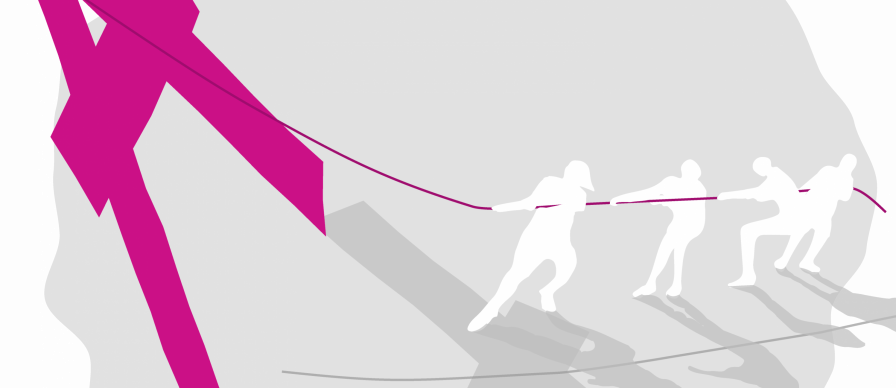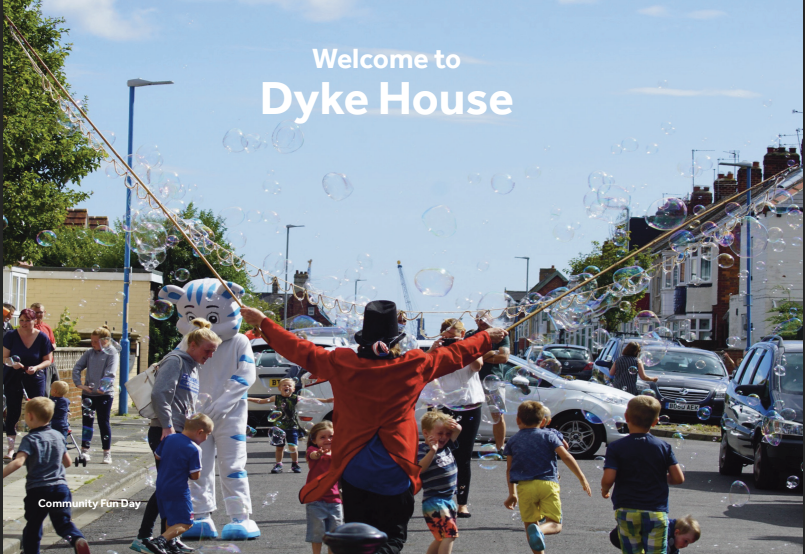Community Organising in Hartlepool: The fun, the serious and the transformational
The Annexe, run by the Wharton Trust, have been working in the community for over 20 years and have used a community organising approach over the last 11 years to bring about much needed change in their area.
The Annexe is a refurbished local Community & Resource Centre run by the Wharton Trust in the Dyke House area of Hartlepool.
Dyke House is within the top 2% of deprived wards in the UK and, as such, experiences high levels of unemployment, low levels of educational attainment and aspiration, high levels of health inequalities and extreme levels of deprivation.
Throughout its 21-year-history, the centre has supported people who live in the community and surrounding areas in a variety of ways to reduce the effects of worklessness and poverty in the area.
Back in 2012, Sacha Bedding and his colleagues decided to take part in community organising training as part of the original Community Organising Programme.
They felt that their previous approach, whilst well-meaning, wasn’t enabling the community to take back power over their lives and they needed to make a change to how they worked with the community.
As an organisation we took a strategic decision, rather than scale up, which is what everyone told us to do, we decided to scale deeper. So the community organising approach was a fundamental platform on which that’s happened.
After this they decided to become a Social Action Hub so they could embed community organising in their organisation training their staff and volunteers in organising.
They have spent the last 10 years using organising to reach out, listen and bring people in the community together offering training to local residents so they could develop their organising skills.
This has enabled local people to take the lead, set up groups and activities and most importantly help the residents of Dyke house to improve their quality of life.
For Wharton Trust organising has 3 focuses; the fun stuff, the serious stuff and the transformational stuff.
They feel all 3 are equally important, as they believe it’s the fun stuff that brings people together and gives people things to look forward to and a chance for friendships to be made. They train local residents in organising to give them the skills needed to take the lead and plan such activities.
This led to one local resident planning a day trip to Whitby for local residents. They took the lead to plan the trip and also to negotiate cheaper bus prices with a local bus company to make the trip affordable and therefore possible for local residents who could not afford a day trip out. As a result they all came together for a day trip out to Whitby.
Other local residents organise weekly events such as bingo nights and breakfast groups giving the community the opportunity to come together, socialise and connect.
We encourage local residents to organise fun activities, but we don’t tell people what to do and as a result they take ownership. We say if you don’t want to do it then it won’t happen..it’s up to you. We will support you, but we are not going to do it for you. That’s the fun stuff where human connection really matters and friendships are formed.
The Wharton Trust believe that the connections made and the trust built through the fun stuff is what enables the serious side of organising to work as residents feel empowered to share their issues and concerns.
A particular issue for the Dyke House community was the children being either excluded from school or within school (by being put in an isolation booth) meaning that children were missing out on their education.
This came about from listening to the parents in the community who were absolutely distraught and looking at the data (Hartlepool having the highest rate of school exclusions over a 10 year period) and led to Wharton Trust running a listening campaign.
They collected 50 stories of children who had been excluded which identified this as a real issue acting as a starting point for taking action on this issue.
Their next course of action is to run a school’s exclusion commission and challenge the local secondary school potentially going to court. This is so the law can be changed with their ambition being to be the first school in the country that do not use isolation as a form of discipline.
Beyond the “serious stuff’ they feel organising enables transformational change to take place, be that individual transformation, community transformation or systemic change.
For local residents of Dyke House the systemic change that was needed was around housing and mainly poor or absent landlords.
This gave them the idea to set up Annex Housing; a community led housing provider for the people of Dyke House, providing people with high-quality homes for social rent (a commitment to take action in their community).
“We had that moment where we thought we could do a 21st century settler movement but rather than people coming in from a community we could house people in a community and support them to change from within. So I had a vision that if we could have a home in every street and organise in every home, what would that look like.
Over a number of years they gained funding to buy 6 houses, each being renovated and rented out to local people with a clause in their tenancy committing them to social action.
To do this they train each tenant in community organising; encouraging them to work with their neighbours to make their street the best it can be.
Their most recent tenant was Scott who was on probation and had to move out of his previous area. He was a joiner and they enlisted his help to build planters out of used pallets as part of their campaign to “Make Dyke House Beautiful”.
This encouraged others to join in too as they could see he was trying to improve the space and gave him the opportunity to build positive connections with people in the area. As a result he has begun to rebuild his life.
Another of their tenant volunteers helps to cook at their street kitchen.
This street kitchen brings together 50-60 people from the community who have substance misuse issues giving them the chance to come together and make positive connections.
Wharton Trust feel that these new friendships give them a new purpose, which they hope will help them overcome their urge to drink or take drugs instead offering them a mutually supportive and positive environment.
You can see the balance change and the transformation happen as residents volunteer to improve their local space or help run an activity. Connections take place and you start to see that real shift in communities as they take back power and improve how and where they live.
Going forward Dyke House have even bigger ambitions.
They have recently launched “The Dyke House Neighbourhood Prospectus” setting out the communities hopes, aspirations and asks so that in the next 10 years the bigger changes they want to see will actually happen.
To read their Prospectus email info@whartontrust.org.uk



